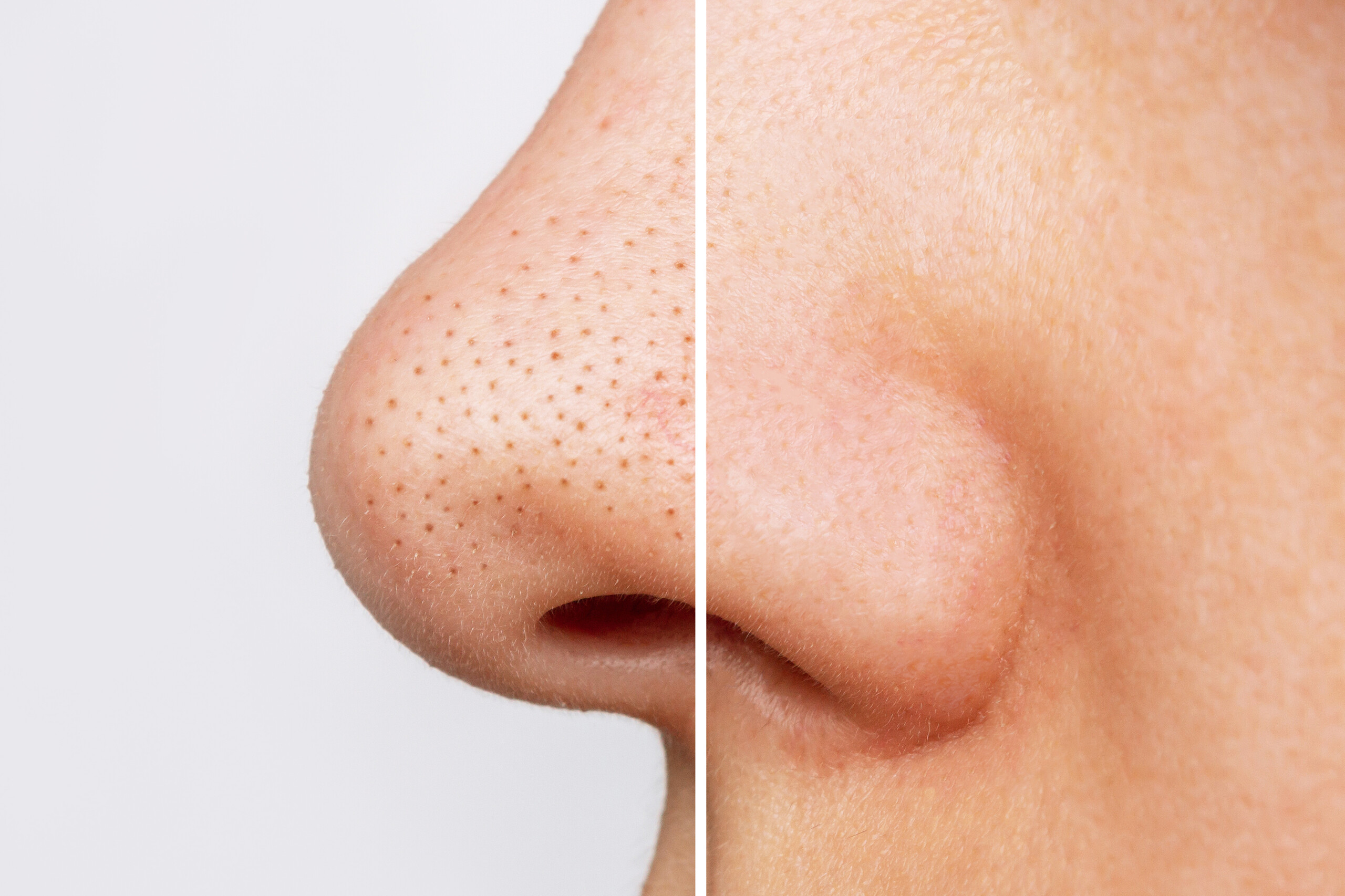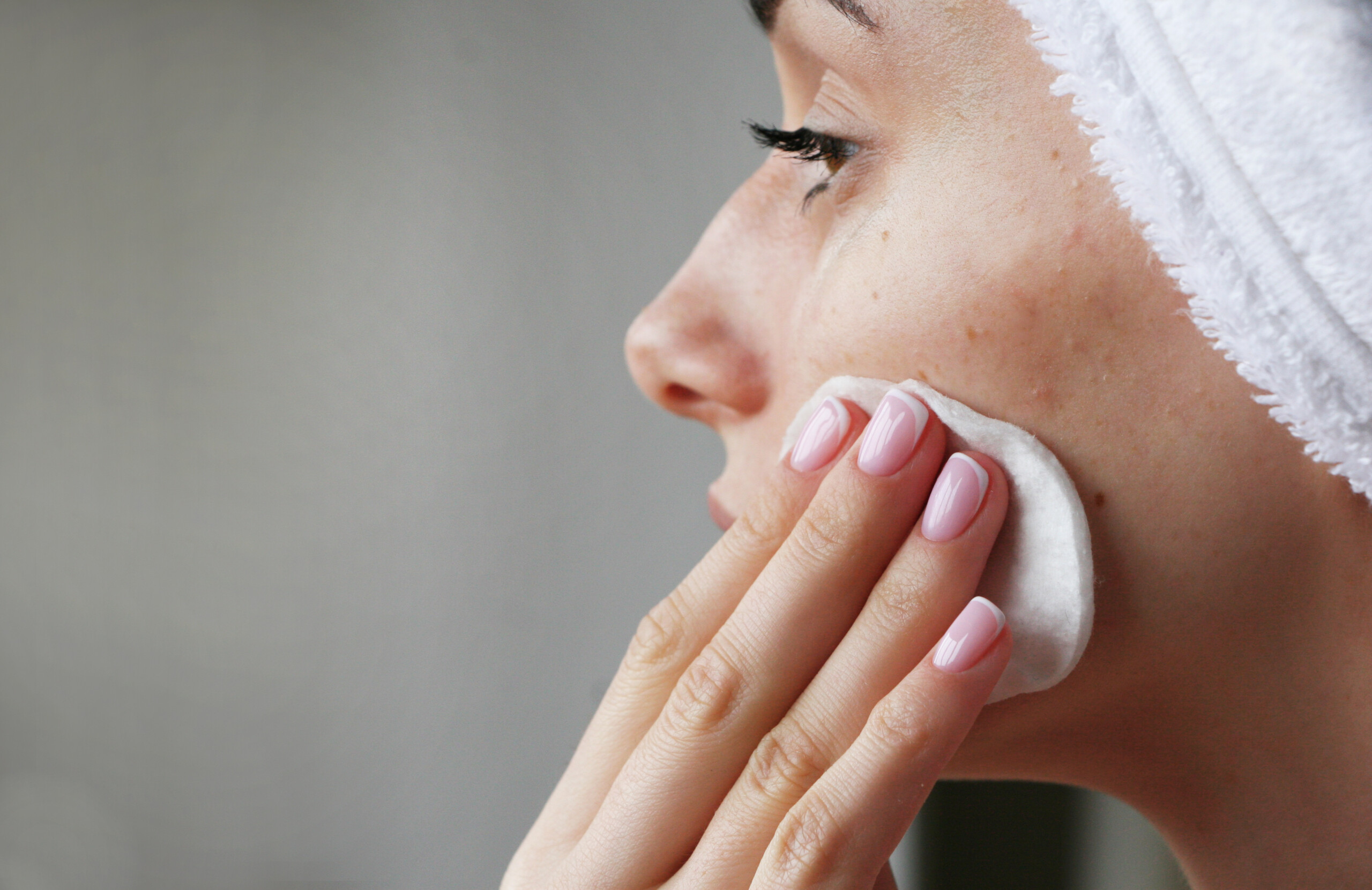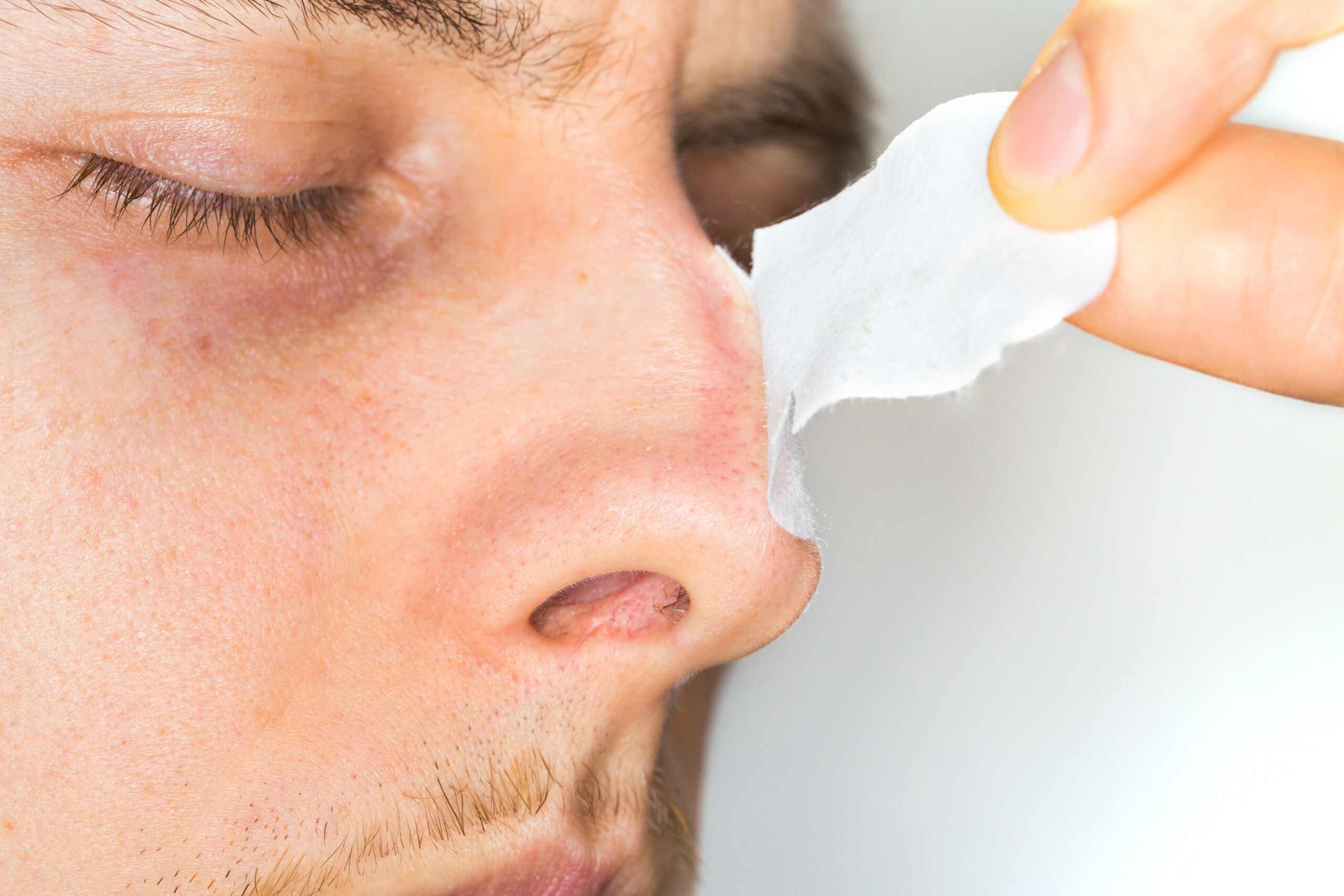Blackheads, scientifically known as open comedones, are a type of acne lesion that appears as small, dark or black bumps on the skin’s surface.
They are a mild form of acne and are commonly found on the face, especially on the nose, chin, and forehead.
Blackheads develop when hair follicles become clogged with a combination of dead skin cells, excess oil (sebum) produced by sebaceous glands, and bacteria.
Here’s how the process occurs:
Excess oil. Sebaceous glands in the skin produce an oily substance called sebum. Sebum is essential for keeping the skin conditioned and preventing it from drying out. If the sebaceous glands are overactive, then an excess of oil will be produced.
Debris. The skin constantly sheds dead skin cells as part of its healthy regenerative process. Sometimes, these cells do not shed properly and can accumulate on the skin’s surface, mixing with the excess oil and causing a clogging effect.
Clogged pores. When excess oil and dead skin cells clog the opening of hair follicles (pores), they form a plug known as a comedone. If the comedone remains open, it oxidises when exposed to air, giving it a dark or black appearance – which is why it’s called a blackhead.
Several factors can contribute to the development of blackheads, including:
Oil factor. Those with naturally oily skin are more prone to blackheads as their skin produces more sebum, increasing the likelihood of pore blockages.
Hormones. Fluctuations in hormones – especially during puberty, menstruation, or pregnancy – can lead to increased sebum production, which in turn, can contribute to skin congestion and blackheads.
Makeup or skincare. Depending on their ingredients, some skincare products or cosmetics can clog pores, leading to blackheads. It’s essential to use non-comedogenic (non-pore-clogging) products.
Diet. Although the link is not entirely clear, some studies suggest that certain diets high in carbohydrates and dairy products might exacerbate acne, including blackheads.
Genetics. If your parents had acne or blackheads, you might be more prone to developing them too due to genetic factors.
If you want to manage and prevent blackheads, then the right skincare, breathable makeup, regular cleansing, and exfoliation can all help.
Avoid comedogenic products – the ones that block your pores. Ingredients commonly found in these products include cocoa butter, lanolin, and oils such as coconut or wheat germ.
Instead, choose oil-free skincare or cosmetics. Some examples of non-comedogenic ingredients include aloe vera, vitamin C, and glycerin. Also, skincare containing a beta-hydroxy acid (BHA) is a non-comedogenic product, because this ingredient gently exfoliates the skin to unclog pores, making it suitable for blackhead-prone skin.
For persistent or severe cases of blackheads, consulting a skin clinician is advisable for professional guidance and treatment options. Our team of Skin & Laser Therapists at Contour Clinics are highly experienced in treating all types of skin concerns, including blackheads of all severity levels.




